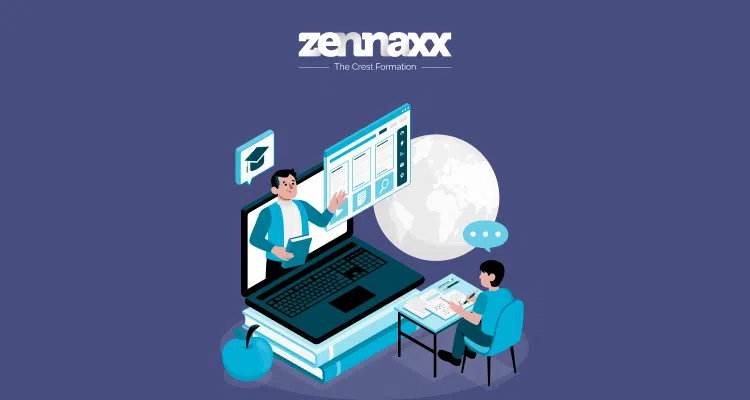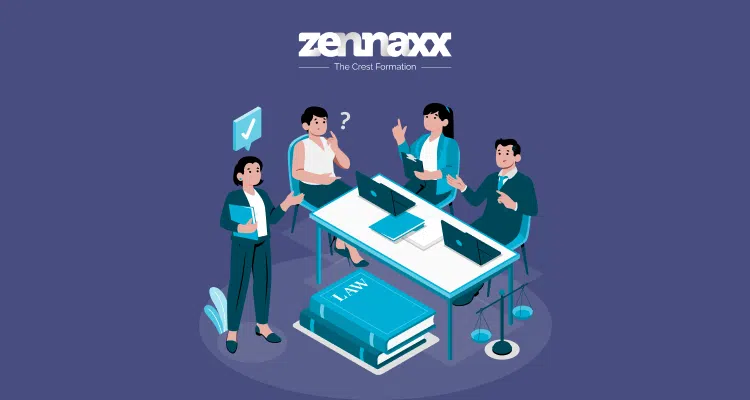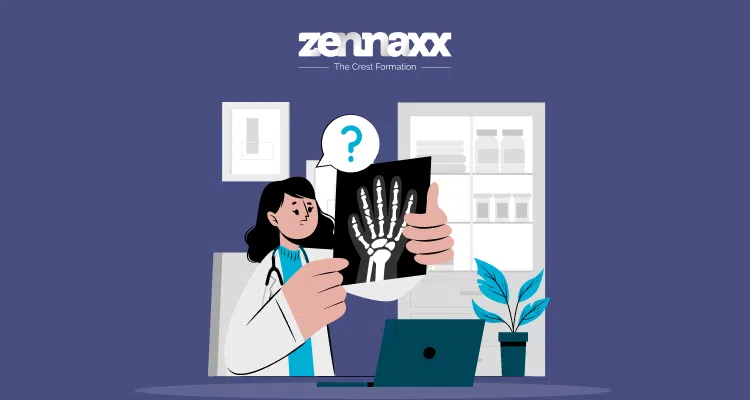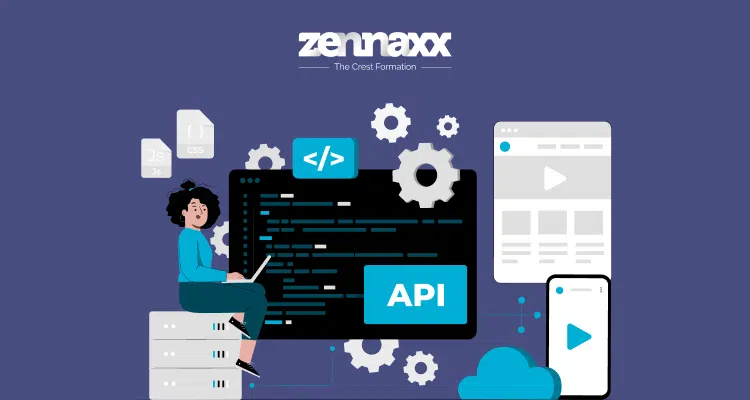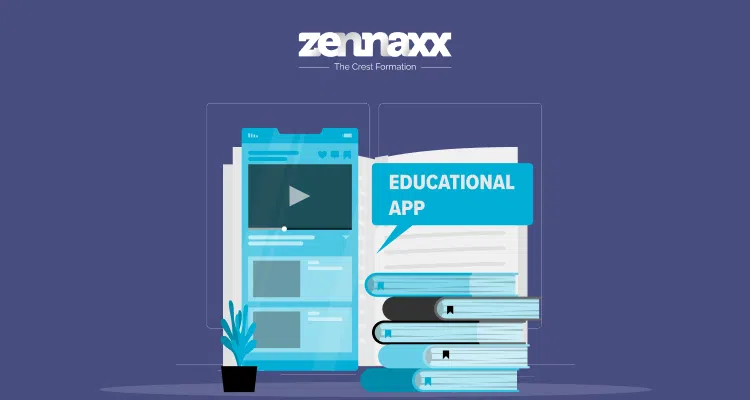Application development processes can become cumbersome without a streamlined workflow. However, the challenges of app development differ for every business. If you are an enterprise, chances are your challenges are not about budget constraints or hiring talent but efficiency.
This is why enterprise app development has been overtly challenging for several organizations.
Every enterprise faces challenges, including large-scale projects, siloed teams, complex organizational structures, and a lack of streamlined processes.
Many enterprise app development solutions have overcome these challenges. This has led to a market for enterprise software growing at a CAGR of 6.55%, estimated to reach $376.40 billion by 2028.
But what if you face such challenges?
This article will help you understand enterprise app development, its differences from the traditional approach, types of applications, features, challenges, and costs.
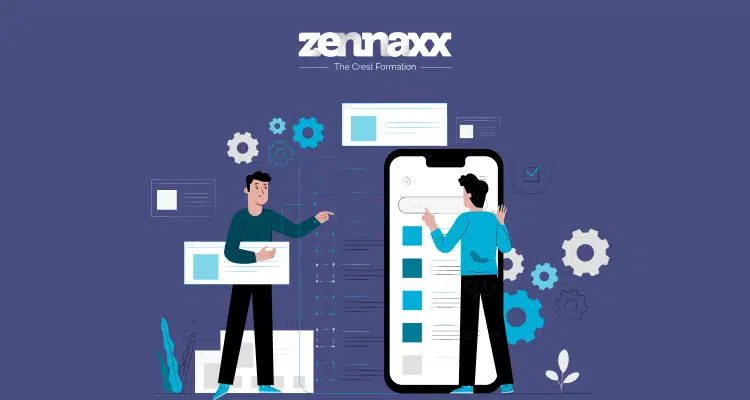
What is Enterprise Application Development?
Enterprise application, or EA, is a software platform with large-scale operations designed to help businesses achieve their organizational goals. The structure of any enterprise application involves integrating computer systems across business operations.
EAs help reduce the complexities of large-scale projects and ensure streamlined workflows. Whether an enterprise builds a simple content management system for its website or payroll management software, EAs help automate key business processes.
Traditional vs. Modern Enterprise Application Development
Developing traditional enterprise applications involves slower and lengthy development cycles. The conventional approach to enterprise software development has a higher cost of ownership due to the time and effort required.
While you may be a large enterprise with a bigger budget for your development projects, one aspect of the conventional approach is still complex- “Tech Debt.”
With innovations and technological changes, upgrading your systems becomes inevitable. However, it becomes detrimental if you have designed your system with a specific tech stack incompatible with many new technologies.
Such technical debts accumulate, increasing the need for costly maintenance and software updates. Modern enterprise software development leverages cloud services and third-party integrations to save time and resources and reduce the total cost of ownership.
You can minimize technical debt by leveraging rapid app development platforms, ensuring easier application maintenance.
Types of enterprise applications you can build
Building enterprise applications for asset management, HRMS, procurement, customer support, and sales can improve your business’s operational efficiency. Businesses build web applications to improve scalability, flexibility, and optimized output.
Asset Management Apps
Asset management apps help businesses streamline and automate the lifecycle management of physical and digital assets. Such apps allow organizations to track, manage, and optimize resources.
Take the example of IBM Maximo, which helps businesses manage assets, including facilities, equipment, and inventory. It offers real-time visibility into operations, enabling enterprises to optimize asset performance, reduce downtime, and extend the life of their equipment.
Similarly, you can build a custom asset management application with the right tech stack and expert enterprise app development services.
HRMS Apps
Every organization, whether small, medium-sized, or enterprise, needs effective human resource management. Human Resources Management System (HRMS) applications allow businesses to manage employees and track performance, remuneration, and engagement.
You can leverage enterprise-grade web application development to ensure effective human resource management, adding features like
- Custom employee analytics
- Performance review reports
- Attendance tracking
- Payroll processing
- Remote access to documents
Procurement Apps
Procurement is a crucial activity for several businesses, especially in manufacturing. Making the procurement decision is essential in managing raw materials and critical equipment costs.
Developing an enterprise app for procurement can help you track prices, make decisions, manage documentation, quotations, and the entire process of acquiring goods.
Integrating procurement apps across businesses can improve ROI. However, you will need experts to create a scalable enterprise application integration platform. This platform allows you to incorporate key procurement modules into your business processes, automating repetitive tasks.
Customer Support Apps
Customer support systems have evolved over the years due to the rising demand for faster response and better resolutions. However, reliable enterprise application development is needed to ensure your system meets users’ expectations.
A significant change in customer support apps today is the integration of innovative technologies like artificial intelligence and natural language programming(NLP). AI-based chatbots are already changing the way customers communicate with businesses.
Further, you can use enterprise app integrations(EAIs) to integrate customer support systems across different applications, enabling smoother data exchange.
So, what is enterprise application integration (eai)?
EAI is a middleware framework that allows enterprises to connect internal and external systems for data exchange. Leveraging AI algorithms helps improve data quality and gain in-depth insights into customer interactions.
Sales Apps
Sales applications require effective management of customer relationships, tracking different sales activities, and forecasting revenue. Developing sales apps can give companies a significant competitive advantage.
It will help you with high-quality sales data, generate custom reports, and improve conversions through deeper customer insights.
Large enterprises can leverage EAI platforms to create an entire ecosystem of sales, customer support, HRMS, and procurement apps. Such an ecosystem elevates operational efficiency and creates a process flow that improves conversions.
Looking to innovate your enterprise with a custom app?
Let’s discuss how we can tailor a solution to your specific needs. How can we empower your business today?
The Challenges of Enterprise Application Development
Enterprise-level companies, from startups to medium-sized businesses, face different challenges. For example, legacy system upgrades are a significant challenge if you seek high-quality enterprise software development for your projects.
Startups face the challenge of market research and figuring out the product’s market fit. But for a large-scale enterprise, it’s a faster and more efficient development approach.
Changing Business Requirements
Business requirements constantly change due to market disruptions, changing customer behavior, and competition. However, molding your enterprise software development according to these changing business requirements becomes challenging.
For example, if you need to add new features to an existing application that can scale on-demand, quickly building and releasing a feature takes work. There are intricacies in existing systems, API integrations, environmental variables, and configurational challenges.
Here are some tips to overcome the challenges of business changes,
- Use agile methodologies such as Scrum or Kanban to ensure flexibility and responsiveness to changing business requirements.
- Establish effective communication among stakeholders, team members, and management to handle the changes without resistance.
- Ensure proper documentation of the changes for proper adoption across the organization.
- Make sure you have seamless data migration from legacy systems to new applications.
Ensuring a return on your investment
ROI is an aspect that needs infusion from the planning stage of your enterprise application development. The outcome and objective need to be defined with respect to the return on your investment.
Investing in a tech stack is especially important to ensure its future-proofness. Similarly, understanding the advantages of enterprise application integration becomes essential if you invest in creating an EAI for your organization.
This is where you need to find the exemplary enterprise software development service that can ensure higher ROI for your projects.
Employee Engagement
Employee engagement is a significant challenge for enterprises in terms of software development. One essential reason for this challenge is siloed teams, which can cause issues with the scale, speed, and quality of software delivery.
One way to ensure employee engagement challenges can be overcome is to embrace the DevOps culture. This culture allows organizations to build cross-functional teams and increase employee engagement for enterprise app development projects.
Overcoming these challenges requires an organization to have strategic and tactical advantages. While strategic advantage can be achieved with agile methodologies and DevOps culture, the features offer tactical benefits.
Features Every Enterprise Application Development Platform Should Have
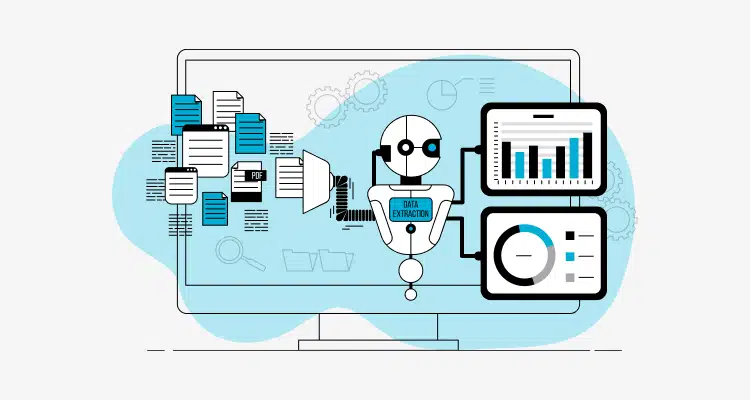
Enterprise application development platforms offer a robust infrastructure for creating, deploying, and managing applications critical to operations. Other crucial features to look for in such platforms are
#1. Robust Security
The security aspect of your enterprise application development includes data encryption and a comprehensive approach to protecting sensitive customers.
Every enterprise app development platform must extend security measures by integrating rigorous authentication and authorization processes.
This ensures no unauthorized access to users’ sensitive data. It also provides better compliance with industry standards and regulations, such as GDPR, HIPAA, or PCI DSS.
#2. Enhanced Scalability
Enterprise application development platforms enable businesses to handle varying application loads through dynamic resource allocation. It ensures uninterrupted performance during peak loads.
Further, distributed architectures, like microservices and container-based solutions, allow efficient scaling of application components.
#3. Seamless Integrations
Integration capabilities form the backbone of these platforms, facilitating a seamless synergy with existing systems such as CRM, ERP, and HRM. This not only enhances interoperability but also ensures a holistic approach to data management, avoiding data silos and capturing all aspects of an entity across applications.
#4. Reporting & Analytics
These features empower businesses with real-time data insights, allowing them to monitor user behavior, application performance, and engagement patterns. Including predictive analytics and data visualization tools will enable businesses to anticipate trends and formulate data-driven strategies.
#5. Cloud Access
Cloud Access is integral to these platforms, providing flexible deployment options across private, public, and hybrid cloud environments. This flexibility is complemented by measures for high availability and disaster recovery, ensuring minimal downtime and safeguarding against data loss.
Factors to Consider While Opting for the Cloud Platform
When selecting a cloud platform for enterprise web application development or software development, there are several critical factors to consider:
#1. Security
Cloud platforms must provide robust security features to protect against data breaches and cyber threats. Secure Enterprise Application Integration (EAI) is essential for integrating disparate systems securely.
Enhanced security features like encryption, access controls, and regular audits contribute to maintaining customer trust and compliance.
#2. Scalability
Enterprises need the ability to scale resources up or down based on demand, especially for web and enterprise software development projects with varying user traffic.
Scalability directly affects an enterprise’s ability to grow and adapt efficiently. Cloud platforms that offer easy scalability support the dynamic nature of business applications.
#3. Swift Application Development Tools
Fast-paced enterprise environments require tools that expedite the development process and enable rapid application deployment.
Tools that facilitate quick integration of various enterprise applications can significantly reduce development time and complexity, streamlining EAI through automation and pre-built connectors.
#4. Ecosystem that Expedites Innovation
The cloud platform should provide a rich ecosystem of tools, services, and APIs that promote innovation, particularly in developing advanced web applications.
Enterprise Application Integration (EAI) allows businesses to foster an environment where information and services can be merged in new ways to create innovative solutions.
A robust cloud platform enhances these advantages by simplifying and streamlining integration processes.
Enterprise App Development Cost
Complex factors, including app complexity, chosen platforms, desired scalability, and AI integration, influence the cost of enterprise application development.
For example, a simple app may cost $10,000, while complex or enterprise-level apps can begin at $90,000 and reach hundreds of thousands, depending on the project’s scope.
Development costs are also affected by the development team’s geographical location, with hourly rates ranging significantly across different regions. Another major factor that affects the price of developing an enterprise application is the engagement model.
For example, you can opt for a fixed cost engagement model if your budget and time needed for the project to be completed are defined.
However, the best engagement model for enterprise application development is a dedicated team that works with your in-house teams and ensures better quality output.
Transform your business with app development
Zennaxx, a leading software development firm in Canada, has delivered 700+ bespoke solutions spanning various industries.
Conclusion
Increasing demand for enterprise applications has led to many organizations spending heavily on getting their processes right, leading to a booming enterprise software development market.
However, if you want high-performing enterprise apps for your business without spending a fortune, understanding their types, challenges, and features is important.
Once you have the entire picture of enterprise application development clear for your project, it’s time to execute. The execution aspect of enterprise apps is crucial because you may not get the results if you don’t get them right.
Fortunately, Zennaxx is a top enterprise app development company that offers custom solutions. So, to ace your enterprise software game, get an estimate for the app development project now.


